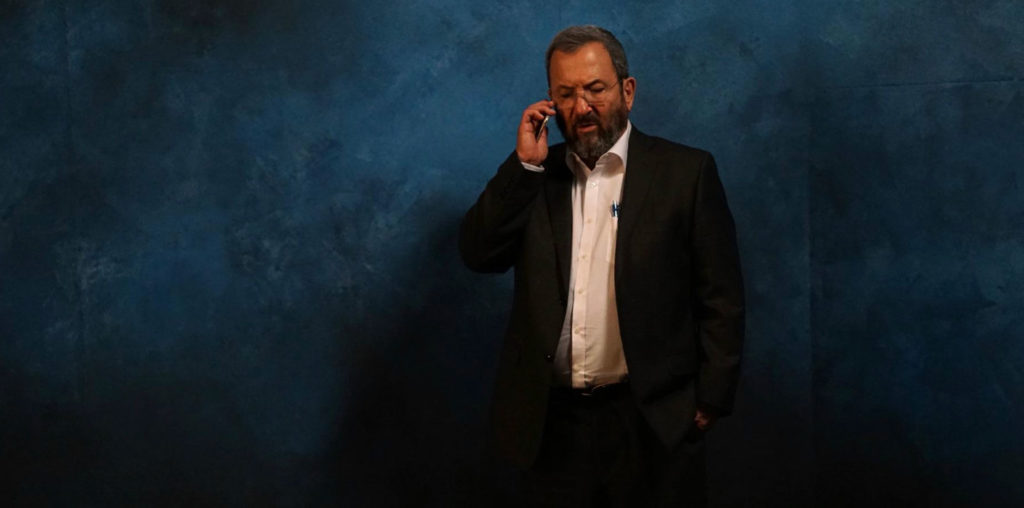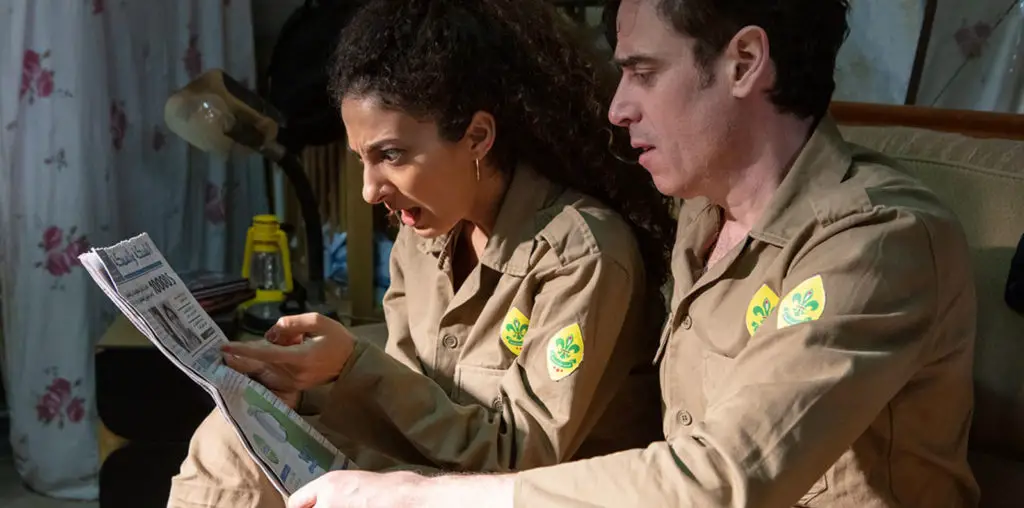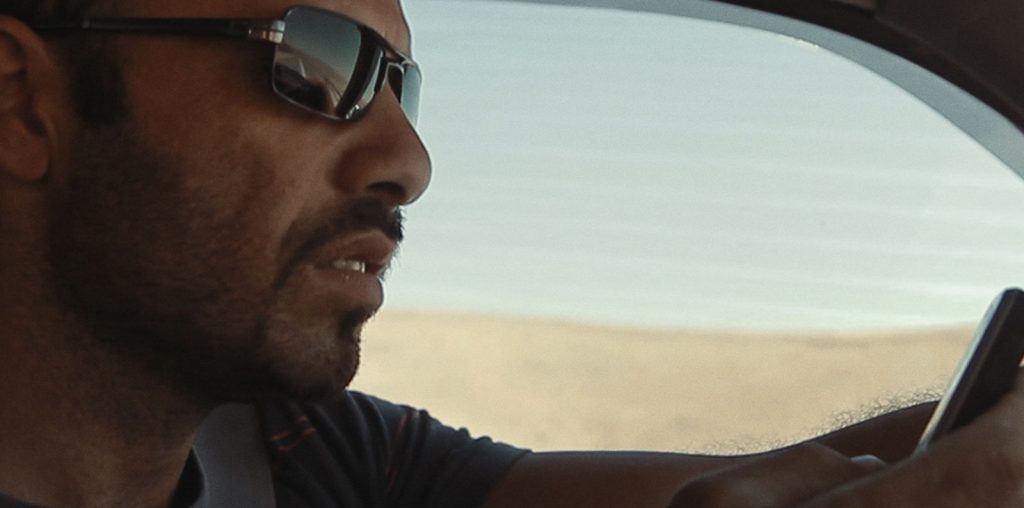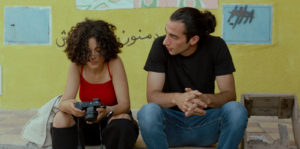
In writer-director Firas Khoury’s drama Alam, a Palestinian high school student named Tamer (Mahmood Bakri) leads a conflicted life. He lives in an Arab village, though he is a citizen of Israel. His parents warn him to stay away from politics, but he becomes involved in political resistance actions in order to impress a beautiful new girl in school named Maysaá (Sereen Khass). His group makes plans to fly the Palestinian flag on a public building on Israel’s Independence Day, which is a mourning day for Palestinians.
The cultural divide is vividly illustrated on this day, which the Israelis consider a celebration of their independence as a state. On the other hand, the Palestinians use the Arabic word “Nakba” (disaster) to describe the same event. Wikipedia describes this moment in 1948 as “…approximately half of Palestine’s predominantly Arab population, or around 750,000 people, were expelled from their homes or made to flee, at first by Zionist paramilitaries through various violent means, and after the establishment of the State of Israel, by the Israel Defense Forces.“
The title Alam is the Arabic word for “flag.” This is most fitting as the cloth ornamentation serves as a focal point and metaphor for the tensely mixed societies Tamer and his friends inhabit. The blue and white Israeli flag is ubiquitous in public spaces. However, in their homes, during meetings of the burgeoning resistance movement, and in demonstrations, Palestinians display and treasure the old flag of their now-defunct state.
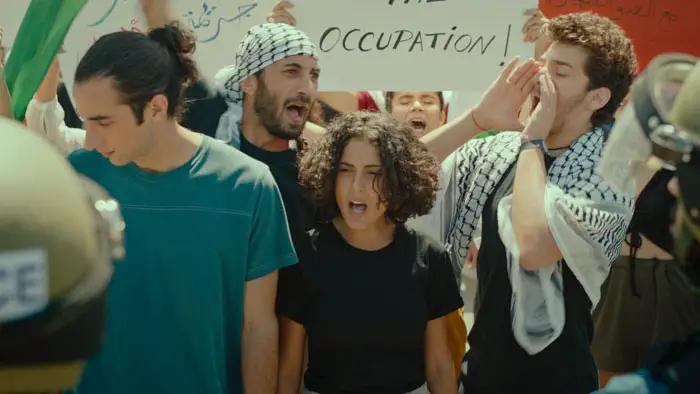
“…makes plans to fly the Palestinian flag on a public building on Israel’s Independence Day, which is a mourning day for Palestinians.”
The quiet and measured approach of Khoury’s style stands in contrast to the simmering rage and angst of the Palestinian youth followed. Tamer’s social group experiences the same challenges and rites of passage as any high-schooler who is coming of age. They have conflicts with their parents and odd relatives. The boys visit an older local who lives with his mother to buy weed. There’s a wild Dazed and Confused vibe to some of the hijinks, which feels normal and healthy. And, of course, Tamer is basing his political activism on his attraction to Maysaá, which is shallow but understandable, especially for someone his age. A blend of ground-level cinematography, pacing, and documentary-style editing gives the film an authentic sense of life for the characters. The performances of Khass, Bakri, and the rest of the cast fit into that realistic approach.
Despite the fact that Alam was completed before the Oct 7, 2023, Hamas attack on Israel and the subsequent ground war in the Gaza Strip, the seeds of that conflict and other ongoing trouble in Israel are clearly present in the barely (and often not) contained rage of the Palestinian students shown here. It is met and matched by the rage of the IDF and Israeli citizens who are trying to manage an internal and adjacent population of Palestinians who have never forgotten Nakba and sympathize with extremist calls to eradicate Israel. These two cultures live juxtaposed, under constant threat, each finding the situation untenable with no solution. There isn’t likely to be a diplomatic outcome as the generations pass, either. Arab nations surround Israel, and their attitude grows ever darker and more emphatic. Since Israel is widely believed to have nuclear weapons, the Arab states stand down for the most part. Their attacks on Israel are generally more performative than deadly. Nuclear weapons notwithstanding. Israel has powerful allies, which also keeps their enemies cautious about attacking. Life for young Palestinians is on a constant knife-edge.
Alam narrates the mixed feelings of Tamer and his peers as they consider acts of resistance rallied around the symbol of the Palestinian flag while in the shadow of the Israeli flag. Khoury’s profoundly moving and alarming film is focused on young people growing into adult identities in a place and time full of dangerous contradictions. Its timeliness cannot be ignored.
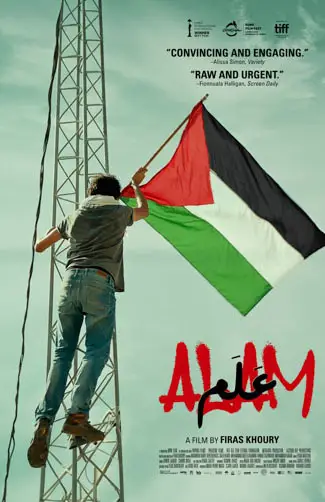
"…profoundly moving and alarming..."
